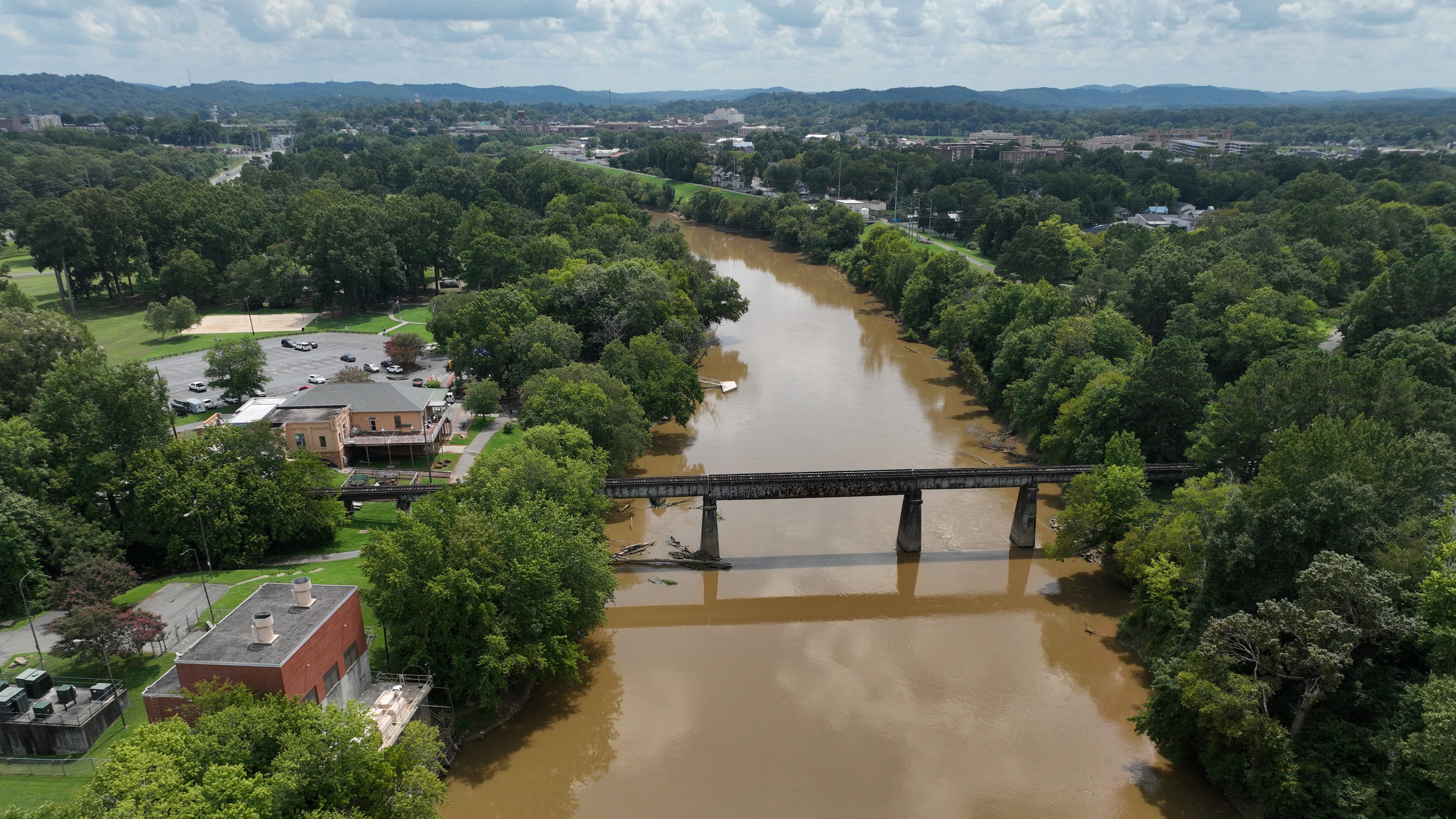Rome to receive nearly $159 million in ‘forever chemicals’ settlement

Editor’s note: This story has been updated to reflect the correct amounts that Shaw and Dalton Utilities settled for. Shaw is settling for $65 million, not $32.5 million. Dalton Utilities is settling for $25 million, not $20 million.
The city of Rome will receive nearly $159 million to settle its claims that neighbors upstream in the flooring industry around Dalton — the “carpet capital of the world” — contaminated the city’s main water source with dangerous “forever chemicals.”
The exact amount of money the city will receive from its settlement agreements has not been previously reported and was obtained Friday by The Atlanta Journal-Constitution through an open records request.
The total money flowing to Rome to resolve its “forever chemicals” case, however, is likely to climb even higher.
The $159 million represents the sum of the settlements the city has finalized with 32 defendants so far. Among those are Dalton’s electric, gas, water and wastewater utility — Dalton Utilities — which will pay Rome $25 million. Flooring manufacturers Mohawk Industries and Shaw will pay $42.5 million and $65 million, respectively, to settle.
But agreements with five others — which include the chemical giants 3M and Chemours — still need to be finalized. Those are expected to be completed later this year and could bring millions more to Rome.
The news of the massive settlement comes as other cases in Georgia and other states are still pending that involve the chemicals, known as per- and polyfluoroalkyl substances, or PFAS. At the same time, concerns about their lasting public health and environmental impacts are growing.
Earlier this week, Rome’s City Commission voted to formally approve the settlements, which the city’s attorney, Andy Davis, said will let Rome build a new, $100 million water treatment plant at no cost to residents, plus cover the facility’s operating costs. The agreements also allowed Rome to roll back steep water rate hikes that had been in effect to pay for the plant, which the commission also voted to do on Tuesday.
Jeff Friedman, a Birmingham-based attorney who was part of Rome’s legal team, praised the city’s leaders for their “proactive” response to their PFAS pollution problems.
“Rome is now going to have the finest water treatment facilities in Georgia, if not the entire nation, and at no cost to their citizens,” he added.

Rome’s lawsuit took aim at Dalton Utilities, Shaw and Mohawk, plus 3M, Chemours and others. The plaintiffs said Dalton Utilities had received PFAS-laden wastewater for years from carpet plants in the region, but that its treatment processes failed to remove the chemicals.
For years, the utility has sprayed wastewater on a 9,600-acre “land application site.” Testing conducted by Rome’s expert witnesses showed that enormous PFAS concentrations have accumulated on the property. The suit alleged that runoff from the site was sending dangerous amounts of the chemicals downstream into the Oostanaula River, Rome’s main drinking water supply.
In 2016, in order to meet new federal drinking water standards, Rome stopped drawing water from the Oostanaula and began temporarily relying on a smaller pump station on the Etowah River. To pay for a permanent solution to its problem — a reverse-osmosis water treatment plant — Rome had raised residents’ water rates by 9% annually through 2025, with additional 3% hikes set to kick in for six years after that.
Kay Phillips, a spokeswoman for Dalton Utilities, said in a statement that the utility “denies any wrongdoing in connection with the alleged presence of PFAS in Rome’s municipal water system and rejects all liability associated with Rome’s lawsuit. "
Earlier this week, Carolyn LaViolette, a spokeswoman for 3M — one of the five defendants whose agreements with Rome are still pending — said the company is working with the city to resolve its claims.
“We will continue to fulfill our PFAS remediation commitments and address litigation by defending ourselves in court or through negotiated resolutions, all as appropriate,” LaViolette added in a statement.
Late Thursday, 3M announced it had would pay $10.3 billion to settle lawsuits claiming its PFAS chemicals contaminated hundreds of water systems around the country. That settlement will not impact Rome’s agreement, but could affect other Georgia cities who discover PFAS pollution problems in the future.
Mohawk Industries and Shaw did not immediately respond to requests for comment.
“Forever chemicals” have been used for decades to add oil-, water-, and heat-resistance to dozens of products — from pans and food wrappers to fabric and carpets. Their resistance to break down in nature means traces can be found nearly everywhere on Earth.
A mounting body of evidence has linked the chemicals to an array of illnesses: cancers, immune system suppression, elevated cholesterol and decreased infant and fetal growth. New research has shown serious health impacts can occur with much smaller exposures than previously known.
Earlier this year, the Environmental Protection Agency (EPA) proposed new drinking-water standards for perfluorooctane sulfonic acid (PFOS) and perfluorooctanoic acid (PFOA), two “forever chemicals” linked to a host of health conditions. Manufacturers have stopped using the two chemicals, but they can persist in the environment for decades.
If the lower federal limits are finalized, more Georgia cities could also face expensive water-system upgrades to comply.
Other major cases involving PFAS pollution in Northwest Georgia, meanwhile, are still unresolved.
A lawsuit filed by Rome resident Jarrod Johnson is seeking class-action certification with other Rome water customers, but the U.S. District Court overseeing the case has not ruled on that request.
A separate class-action lawsuit filed by a resident of Summerville and joined by the city itself is seeking to hold fabric manufacturers around Trion and chemical companies responsible for PFAS contamination in its water supply. A trial date has not been set in that case.



